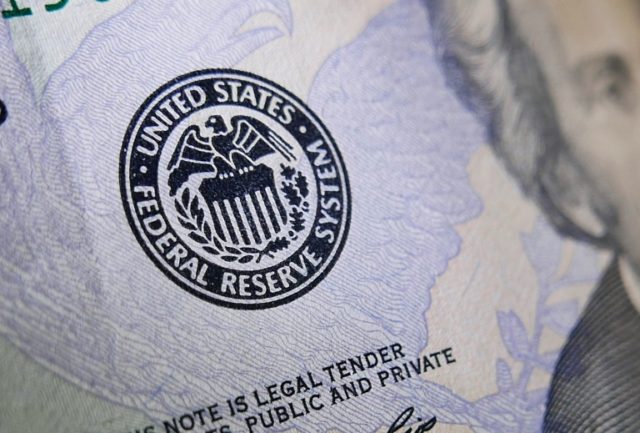Washington (AFP) – An unexpected landscape of weak growth and the higher risk of a pro-Brexit vote in Britain should keep the Federal Reserve in wait-and-see mode as it opens its June policy meeting Tuesday.
Analysts say members of the Federal Open Market Committee led by Fed Chair Janet Yellen still want to push ahead on normalizing US monetary policy with higher interest rates.
But given the surprises of recent weeks — a very disappointing May report on the US employment market, a fall in inflation expectations, and a rise in support for Britain pulling out of the European Union — the FOMC will hold off during the two-day meeting.
“Brexit will likely keep them sidelined until September,” said Chris Low at FTN Financial.
“If events do not follow their forecast path, Fed policy has to adapt.”
Instead, Fed policymakers will focus on current risks facing both the United States and the global economy, and how they see the US economy growing over the rest of the year, said Jim O’Sullivan of High Frequency Economics.
“Officials will likely signal increased uncertainty,” he said.
The Fed has been anxious for more than a year to move its benchmark federal funds rate away from near zero, and raised it to 0.25-0.50 percent in December.
But since then the momentum of the US economy has sagged, in part due to sluggish global growth, and US inflation has not gained pace as the Fed had expected.
In late May FOMC members were still confident, predicting a rate increase in June or July. But then the economy turned in its worst employment report in nearly six years on June 3, with the number of jobs added, 38,000, just one-quarter of what was expected.
On June 6 Yellen called the poor jobs report “concerning” and said she was focused as well on an apparent downturn in inflation expectations, which could hold back any upward pressure on real prices.
“If inflation expectations really are moving lower, that could call into question whether inflation will move back to two percent as quickly as I expect.”
Implicit in that, analysts said, was that the Fed could not raise interest rates when inflation signals could call for looser monetary policy.
At the same time, this week’s meeting, which ends Wednesday with a policy statement, new economic projections and a Yellen press briefing, comes one week before Britain votes in a referendum on pulling out of the European Union. A “leave” victory could rock financial markets and impact British and EU growth.
“A UK vote to exit the European Union could have significant economic repercussions,” Yellen said.
Worries over Britain’s June 23 referendum have already sent investors chasing safety. The pound fell again Tuesday to $1.4116, down from $1.47 three weeks ago when markets were confident that the British public would reject Brexit.
US Treasury bond yields have sunk and in Europe on Tuesday the yield on the German 10-year bund was negative for the first time.

COMMENTS
Please let us know if you're having issues with commenting.